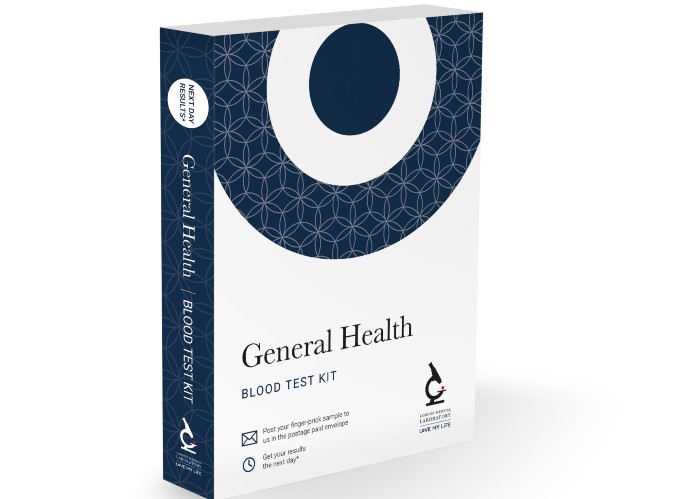
A new Government report – UK Measures of National Wellbeing – gives us a snapshot of the state of the nation. It seems we are all getting more anxious and gloomier about the society we live in and our healthcare system.
In the light of recent events, it is perhaps telling that there has been a near 10% fall in the number of Brits who think people from different backgrounds get on well together. It’s also very worrying that fewer than half of us are satisfied with the UK’s healthcare system.
However, a leading health expert says there is still some cause for optimism in a number of the report’s findings.
Dr Avinash Hari Narayanan (MBChB), Clinical Lead at London Medical Laboratory, says: ‘This Office for National Statistics (ONS) “state of the nation” report reveals that the nation is in a bit of a state. Since Covid, people’s feeling of general wellbeing seems to have fallen markedly in many areas.
‘Concerningly, while last year almost 60% of us agreed or strongly agreed that people from different backgrounds get on well together in their local area, just one year later only 50.4% now believe this. The near 10% fall was recorded before the recent public unrest and perhaps gives us an insight into how the situation may have developed. Even so, 53.9% agreed or strongly agreed that they feel like they belong to their neighbourhood, exactly the same percentage as last year.
‘Feeding into these results, 23.3% of Brits rated their anxiety the previous day as high. That’s up from 20.5% in 2019. So it looks like our levels of anxiety have risen since the pandemic.
‘Concerningly, fewer than half of Brits said they were satisfied with the UK’s healthcare system. Just 49.4% said they tend to be satisfied with healthcare. That should concern both the Government and health professionals.
‘Brits may be right to be concerned about the recent state of UK health services. The report also reveals healthy life expectancy at birth has decreased for both males and females in 2020 to 2022 compared with 2011 to 2013, when measuring began. Healthy life expectancy is a calculation of how long we may expect to live in relatively good health. In England, healthy life expectancy at birth was estimated at 62.4 years for males and 62.7 years for females in 2020 to 2022. This shows a long-term negative change since 2015 to 2017 for both males (63.4 years) and females (63.9 years).
‘Furthermore, around 1 in 5 adults in the UK reported some evidence of depression or anxiety. 21.8% reported some evidence of depression in the survey, which is concerningly more than the 19.1% who reported these feelings in 2016 to 2017.
‘All these findings are reflected in the percentage of UK adults reporting that low satisfaction with their lives has increased since 2019. In January to March 2019, 4.5% of people rated their life satisfaction as low but in the same period this year that climbed to 5.3%.
‘However, despite all the gloom and doom the report uncovered, there are still some causes for optimism. Around 7 in 10 adults said they tend to feel hopeful about their future and the percentage of Brits reporting low happiness the day before has remained steady since 2019 (at between 8-9%).
‘Furthermore, just under 9 in 10 adults are happy with their social relationships. 86.6% said that they were fairly or very satisfied with their social relationships (friends, family, neighbours and other people they know). That’s a healthy sense of community and family.
‘It will be very interesting to see the results of the next such survey in 2025, when the new Labour Government has had a year to put its plans for the NHS into practice and the causes of the recent riots have been examined.
‘In the meantime, if people are particularly concerned about this snapshot view of the healthcare system, it’s also possible to get a snapshot of their own health. New blood tests introduced in the last few years mean people also have swift access to a vast array of information through a simple finger-prick test, which can even be taken in their own home.
 ‘For example, London Medical Laboratory’s General Health Profile blood test monitors seven key areas of health. It includes muscle and bone profile, liver & kidney function, risk of diabetes (by checking levels of HbA1c), cholesterol levels, iron levels and even the risk of gout.
‘For example, London Medical Laboratory’s General Health Profile blood test monitors seven key areas of health. It includes muscle and bone profile, liver & kidney function, risk of diabetes (by checking levels of HbA1c), cholesterol levels, iron levels and even the risk of gout.
‘London Medical Laboratory’s General Health Profile blood test can be taken at home through the post, or at one of the many drop-in clinics that offer these tests across London and nationwide in over 120 selected pharmacies and health stores.
For full details, see: https://www.londonmedicallaboratory.com/product/general-health



